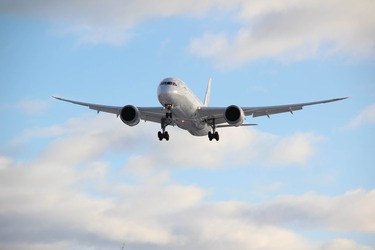Navigating air travel within the United States can be complex, especially for undocumented immigrants. The question “can an illegal immigrant fly within the U.S.?” is frequently asked, and the answer is not a simple yes or no. While it is technically possible, it comes with potential risks and considerations. This article, brought to you by the legal experts at flyermedia.net, breaks down what you need to know before considering domestic air travel.
 Undocumented immigrants and domestic air travel in the USA
Undocumented immigrants and domestic air travel in the USA
Navigating TSA Identification for Domestic Flights
The Transportation Security Administration (TSA) mandates that all passengers 18 years and older present acceptable identification at airport security checkpoints to board a domestic flight. This policy applies to everyone, regardless of immigration status. Acceptable forms of identification include a variety of documents, not exclusively those proving legal U.S. status.
According to TSA guidelines, valid forms of ID include:
- U.S. passport
- Foreign government-issued passport
- Permanent resident card (Green card)
- Driver’s licenses or identification cards issued by a state
- Employment Authorization Document (EAD)
- And other forms of ID recognized by the TSA
Significantly, a valid, unexpired passport from your country of origin is an acceptable form of identification for TSA purposes. Similarly, driver’s licenses issued by certain states to undocumented immigrants can also be used. Currently, a limited number of states and territories, including the District of Columbia and Puerto Rico, allow undocumented immigrants to obtain driver’s licenses. If you possess a valid foreign passport or a driver’s license from one of these states, you are likely to clear TSA security for domestic flights.
However, the landscape of acceptable identification is evolving. The REAL ID Act, set to be fully enforced on May 7, 2025, introduces stricter federal standards for state-issued identification used for domestic air travel.
To comply with the REAL ID Act, state-issued IDs must include:
- Full legal name
- Date of birth
- Social Security number
- Two proofs of address
- Proof of lawful status
While a foreign passport remains an acceptable alternative to REAL ID after the 2025 deadline, the Act highlights a growing emphasis on secure and verifiable identification for domestic travel. For undocumented immigrants, understanding these evolving requirements is crucial.
Understanding Immigration Status Checks and Border Patrol Risks
While TSA’s primary focus is security screening, travelers, especially those who are undocumented, need to be aware of potential encounters with Customs and Border Protection (CBP) officers, particularly at airports located near U.S. borders.
Airports situated in border states or coastal regions may have CBP checkpoints. At these checkpoints, CBP officers can inquire about your immigration status. If CBP determines that you are in the United States without legal authorization, you could face detention and potential deportation proceedings. This risk is heightened at airports with international traffic or those serving as ports of entry.
It’s important to note that not all domestic airports have routine CBP immigration checks. However, the possibility exists, especially in the aforementioned locations. Therefore, undocumented immigrants should be aware of this potential risk when considering domestic air travel, particularly from or to airports near international borders.
Recommendations for Undocumented Immigrant Air Travelers
Given the complexities and potential risks, undocumented immigrants considering domestic air travel should take the following precautions:
- Consult with an Immigration Attorney: Before making travel plans, seeking advice from an experienced immigration attorney is highly recommended. An attorney can assess your specific situation, advise on the potential risks, and explain your rights.
- Carry Valid Identification: If possible, travel with a valid, unexpired foreign passport or a state-issued driver’s license recognized by TSA. This can facilitate smoother security checks.
- Be Aware of Your Rights: Understand your rights if questioned by law enforcement or CBP officials. You have the right to remain silent and the right to an attorney.
- Minimize Travel Risks: If possible, consider alternative modes of transportation, especially if traveling to or from border regions, to reduce the risk of encountering CBP.
 Helen L. Parsonage – Immigration Attorney at EMP Law
Helen L. Parsonage – Immigration Attorney at EMP Law
Domestic air travel for undocumented immigrants is possible, but it is not without risks. Staying informed about identification requirements, potential immigration enforcement encounters, and seeking legal counsel are essential steps to navigate domestic flights safely. For further guidance on immigration matters, it is always best to consult with qualified legal professionals.